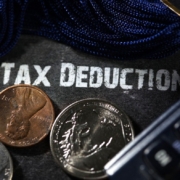FIRST-TIME HOMEBUYER’S CREDIT RECAPTURE
To stimulate home sales, Congress established the first-time homebuyer credit in 2008, resulting in some complicated recapture rules.
Unlike the 2009–2010 credit, which must be recaptured only when the home is not used as a principal residence any time within the 36 months after its purchase, the 2008 credit was actually a form of a no-interest loan that had to be paid back to the federal government in 15 equal annual installments beginning in 2010. The repayment amount is included as a tax on the homebuyer’s annual income tax returns through 2024 unless one of the exceptions noted next applies.
Recapture Exceptions – Some exceptions apply to the recapture rules:
- Government Service Waiver – In the case of a disposition of a principal residence by an individual (or a cessation of use of the residence that otherwise would cause recapture) after Dec. 31, 2008, in connection with government orders received by the individual (or the individual’s spouse) for qualified official extended duty service, no recapture applies by reason of the disposition of the residence, and any 15-year recapture with respect to a home acquired before Jan. 1, 2009, ceases to apply in the tax year of the disposition.
- Taxpayer’s Death – If a taxpayer dies, any remaining annual installments are not due. If a joint return was filed, and the taxpayer passes away, the surviving spouse would be required to repay his or her half of the remaining repayment amount.
- Ceases Being Main Home – If a taxpayer stops using a home as the main home, all remaining annual installments become due on the return for the year that this occurs. There are special rules for involuntary conversions.
- Home Sold – If a home is sold, all remaining annual installments become due on the return for the year of the sale. The repayment is limited to the amount of gain on the sale if the home is sold to an unrelated taxpayer. If there is no gain or if there is a loss on the sale, the remaining annual installments may be reduced or even eliminated. For example, in 2008, a home was purchased for $200,000, and the homebuyer was eligible for and claimed a credit of $7,500. Assuming that no improvements are made on the home, and it is sold for $195,000 after repaying $500 of the credit, the gain or loss would be measured for purposes of the accelerated credit recapture from $193,000 (the original cost of $200,000 less the $7,500 credit plus the $500 repayment). In this case, there would be a gain of $2,000 on the sale ($195,000 minus $193,000). Thus, the taxpayer would only be liable for repaying $2,000 of the credit when the home is sold. Had the home sold for $193,000 or less, there would be no repayment required. If the home is sold to a related party, the full recapture amount must be paid regardless of the amount of gain (or loss).
- Divorce – If a home is transferred to a spouse or to a former spouse (as part of a divorce settlement), that person is responsible for making all subsequent installment payments.
- Involuntary Conversion – If the home is involuntarily converted (e.g., it is destroyed in a storm), and the taxpayer buys a new principal residence within a two-year period beginning on the date of the disposition or the date the home ceases to be the principal residence, the accelerated recapture rule does not apply. However, the regular recapture rule applies to the replacement principal residence during the recapture period in the same way as if the replacement principal residence were the converted residence.
Please call this office if you have questions related to the recapture of the First Time Homebuyer credit.








Leave a Reply
Want to join the discussion?Feel free to contribute!